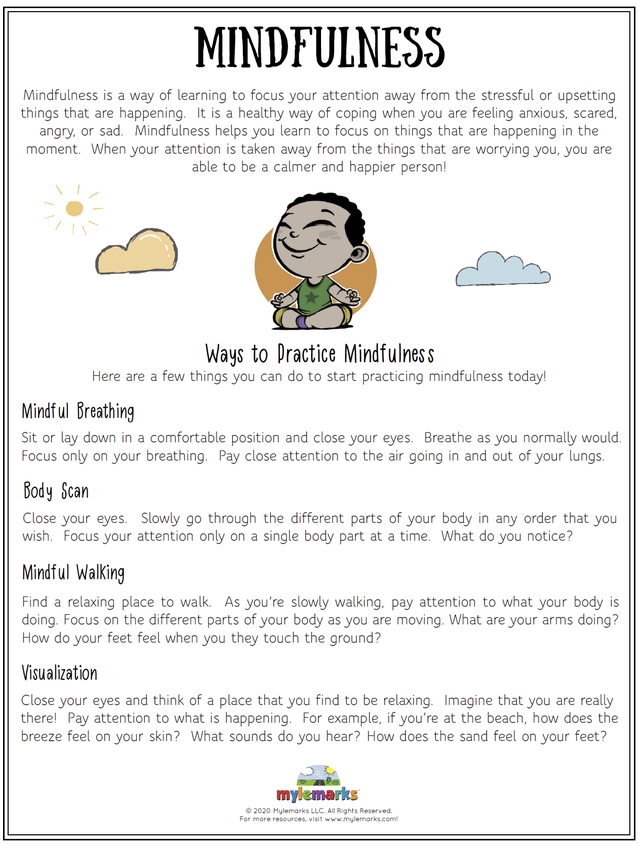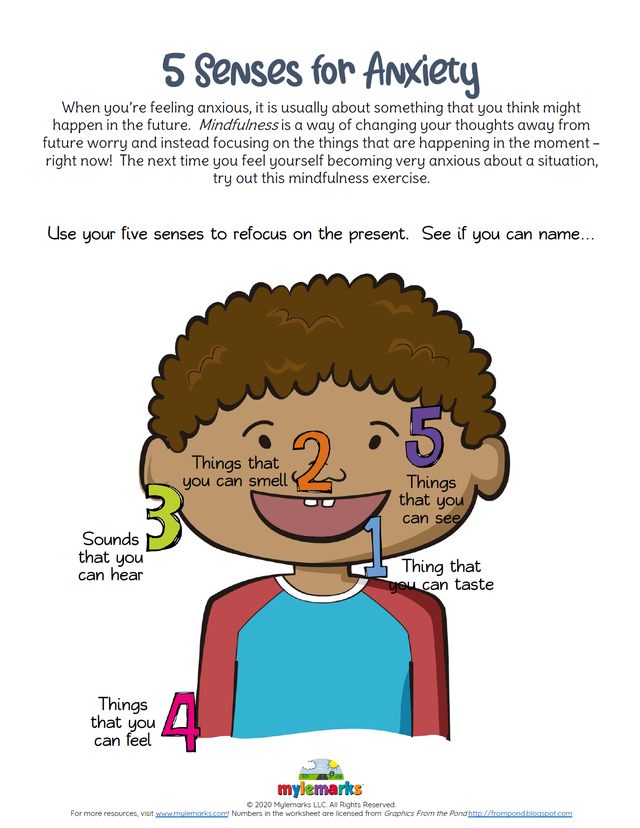- the mylemarker
- Posts
- 🔒 Instagram takes action, mindfulness cards, and more
🔒 Instagram takes action, mindfulness cards, and more
In this edition, we’re highlighting Instagram’s efforts to protect teens, the mental health struggles of young performers, and fresh mindfulness tools from Mylemarks.
THE ROAD MAP
In this newsletter, you’ll find:
🚦 First stop (Instagram protecting teens)
🛤️ Site-seeing at mylemarks.com (NEW Mindfulness cards)
📡 On the Radar (Young performers, only children, and more)
📣 A Word from 1440 Media
📊 Results are in (Poll results from the last edition)
✍🏽 U(r)-Turn (Let’s hear from you)
🤗 Sharing is Caring (spread the mylemarker love and earn)
Let’s go!

FIRST STOP
🔒 Instagram Takes Action: Protecting Teens' Privacy

Big changes are coming to Instagram, and they're all about keeping teens safe online. The platform is introducing new features to limit the amount of data collected from users under 18 and prevent unwanted interactions. And it's about time - according to a Pew Research Center survey, a whopping 54% of teens aged 13-17 have experienced online harassment. That's a staggering number, and Instagram is taking steps to change it.
From now on, teen accounts will default to private, so only approved followers can see their content. Plus, the platform is restricting who can message or comment on teen posts. And to take it a step further, Instagram is introducing a new feature that prevents adults from sending direct messages to teens who don't follow them.
“We're committed to doing more to support teens, and we're working closely with experts and policymakers to ensure that our platform is a place where teens can express themselves safely and authentically.”
But that's not all - Instagram is also using AI to identify and remove suspicious accounts that may be interacting with teens in a predatory manner. It's a big move, and it's part of Instagram's broader efforts to promote online safety and well-being, especially among its youngest users. With over 1 billion active users, Instagram's commitment to teen safety is a significant step towards creating a more responsible and protective online community.
SITE-SEEING at mylemarks.com
NEW: Mindfulness Conversation Cards

Introducing our new Mindfulness Conversation Cards—an easy way for kids to practice mindfulness! These cards guide children to slow down, focus on their bodies, and use their imagination to stay present. Mindfulness can help manage anxiety, improve emotional regulation, and strengthen attention skills, making these cards a great addition to therapy sessions.
Perfect for individual or group use, therapists can incorporate these prompts to support kids dealing with stress and emotional overwhelm. In individual therapy, they help kids build calming strategies, while in groups, they encourage discussions about feelings and self-awareness. A simple, versatile tool for promoting mindfulness and emotional well-being! Find additional Conversation Cards here.
💡 Check out these other mindfulness resources you might enjoy!
📣 A Word from 1440 Media
Receive Honest News Today
Join over 4 million Americans who start their day with 1440 – your daily digest for unbiased, fact-centric news. From politics to sports, we cover it all by analyzing over 100 sources. Our concise, 5-minute read lands in your inbox each morning at no cost. Experience news without the noise; let 1440 help you make up your own mind. Sign up now and invite your friends and family to be part of the informed.
ON THE RADAR
💔 The Mental Health Struggles of Young Performers
The recent death of 17-year-old "America's Got Talent" contestant has brought attention to the often-overlooked issue of mental health in young performers. The pressures of fame, social media scrutiny, and intense competition can take a toll on the mental well-being of young people in the entertainment industry. The constant need to present a perfect image, coupled with the fear of failure and rejection, can lead to anxiety, depression, and other mental health struggles. This tragedy serves as a wake-up call for parents, mentors, and industry professionals to prioritize the mental health and well-being of young performers.
—
🧒 What ‘Only Children’ Discuss Most in Therapy
Growing up as an only child can have its perks, but it also comes with its own set of unique challenges. According to therapists, only children often bring up specific issues in therapy that their siblings-having counterparts don't. For one, only children often struggle with an intense sense of responsibility, having been the sole focus of their parents' attention and expectations. This can lead to anxiety, people-pleasing, and a fear of failure. Additionally, only children may have difficulty with boundaries and conflict resolution, having never had to navigate sibling squabbles. They may also grapple with feelings of loneliness and disconnection, particularly as they navigate adulthood without built-in sibling relationships. By acknowledging these common challenges, therapists can better support only children in working through their unique struggles.
—
🌍 Parenting Across Cultures: The Impact on Children’s Mental Health
For immigrant parents, navigating a new culture can be a daunting task, especially when it comes to raising their kids. Cultural clashes between their country of origin and their new home can lead to feelings of confusion, anxiety, and isolation - all of which can impact their child's mental health. Research shows that immigrant parents often struggle to balance their traditional parenting values with the more permissive and individualistic parenting styles common in Western cultures. This can lead to conflicts with their children, who may be more assimilated into the new culture. However, with the right support, immigrant parents can build stronger relationships with their kids and improve their mental health outcomes.
—
🌡️ Anxiety and Depression in Kids with Chronic Pain
New research has shed light on the complex relationship between anxiety, depression, and chronic pain. It turns out that these three conditions are more closely linked than we thought, with anxiety and depression playing a significant role in the development and maintenance of chronic pain. In fact, studies have shown that individuals with anxiety and depression are more likely to experience chronic pain, and vice versa. This vicious cycle can be particularly challenging to break, as chronic pain can exacerbate anxiety and depression, while also making it harder to treat these mental health conditions. However, by acknowledging the interconnectedness of these conditions, researchers and clinicians can develop more effective treatments that address the whole person, rather than just one symptom.
—
📚 Sweden’s New School Age
Sweden is lowering the school starting age from seven to six, shifting from its long-standing play-based approach to a more formal academic structure. The government hopes this will boost educational outcomes by providing earlier interventions for struggling students. However, critics are concerned that this could reduce valuable playtime, which is critical for social and emotional development. Swedish Minister Lotta Edholm noted, “Children who need extra support will benefit from starting school earlier.” The move also aligns Sweden with many other European countries that already start school at six.
RESULTS ARE IN
In the last edition of the mylemarker, we asked, What’s your view on traditional cognitive assessments like the Marshmallow Test and others? from our feature article from Washington Post. See the results and a few responses below!

“So much has changed in culture. We do not have the same standards with children and it would be interesting to see the test redone so many years later. Comparing culture from then to now to understand if there has been a shift in either direction would be helpful. ”
“i have used them with success as an experiment to see how well students can delay gratification so to hear this new context is quite interesting.”
“I’ve never relied heavily on these tests and assessments when working with clients. I know that they can be useful, but results should be taken with a grain of salt. It should also take into considerations culture, socioeconomic status, family history, and more. The tests give a little bit of information but they don’t tell the whole story.”
“So many things in our field are outdated and need to be updated and refreshed for today’s generation. I’m glad people are actually talking about it and looking to make some changes. There are still people who are resistant to change that don’t think these tests have any bias. I think they might be holding our field back and hurting clients in the process if we don’t make some changes.“
U(R)-TURN
We’d love to hear from you! Help guide future products by answering the question below. Or if you have something nice to say about us, consider leaving a testimonial!
me: did you have fun on your playdate?
my 9yo: yes, but that was the wrong Logan. Next week can I have a playdate with the Logan who's my friend?
— Daddy Go Fish (@daddygofish)
3:29 AM • Sep 9, 2024
Worksheets | Activities | Workbooks | Journals | Games | Videos | Freebies






